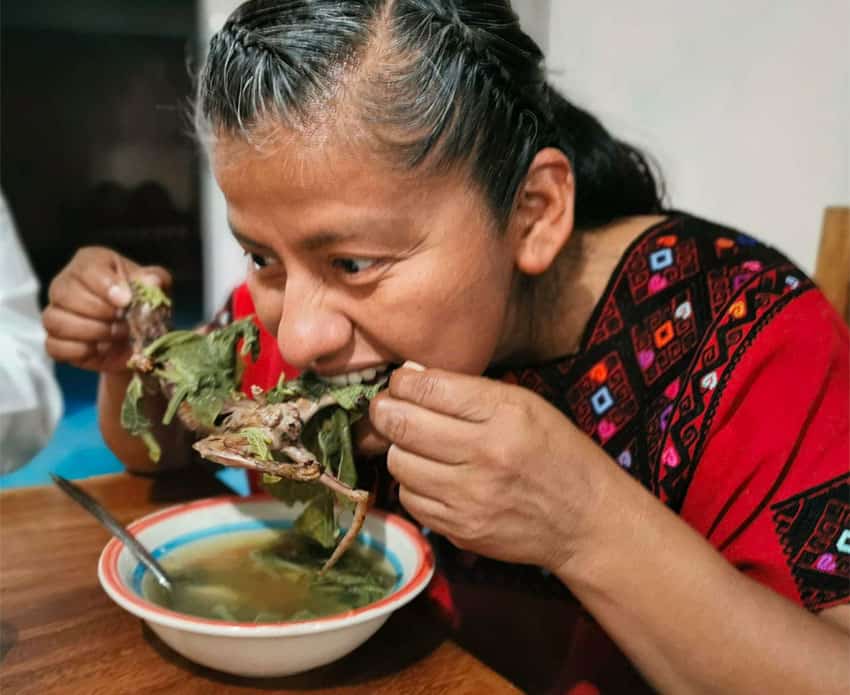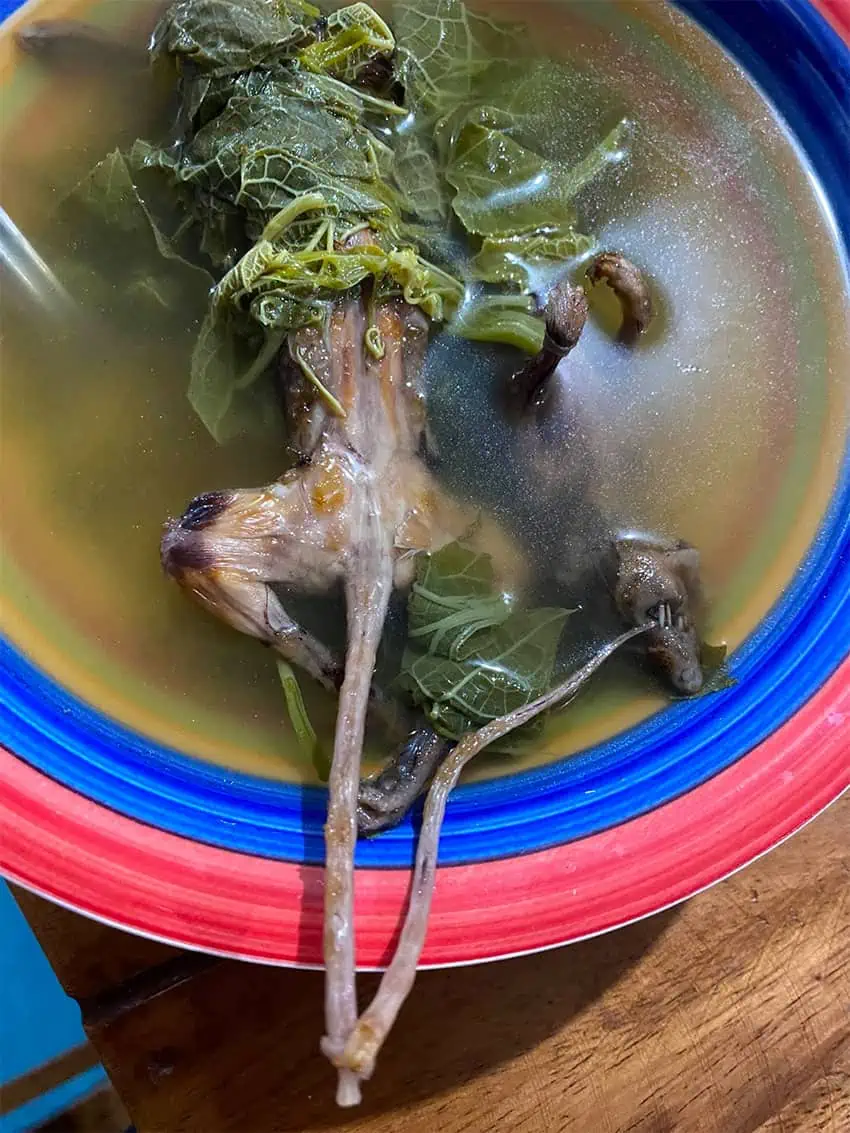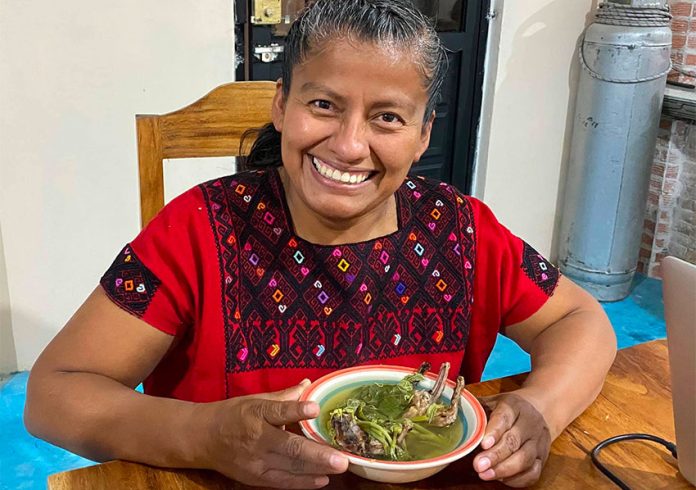A federal deputy for Oaxaca displayed her appreciation for the culture of a town in Chiapas by sharing photos showing her dining on a treasured dish: field rat soup accompanied by some leafy vegetables.
Irma Juan Carlos of Teotitlán de Flores Magón appeared in photos on social media with a radiant smile as she sat before a bowl containing an easily identifiable rat. Under another photo of her enjoying the delicacy a caption read, “Sampling the ancestral food of our brothers from the town of Oxchuc, #ratademonte [field rat].”
The post also attested to the rat’s nutritional value: “This ancestral dish is 95% protein, all the protein that a human being needs.”
The dish has become one of the region’s most popular; its low price is a selling point for local families. It has been consumed for generations due to its high protein content and as a medicinal remedy to relieve the common cold.
Field rat is not considered an unhealthy option given that the small creatures feed only on herbs, roots and seeds.

Apparently the dish is easy to prepare. One recipe suggests boiling the field rat in water along with some chayote, and adding a little salt. The meat becomes soft and the broth remains almost translucent.
One social media user confirmed its culinary value. ““What delicious meat! It really is a delight. My grandparents fed me that when I went on vacation … Enjoy the meal!”
However, another user expressed distaste. ““Let’s hope they are not going to be like the bats,” the reader wrote, in reference to the alleged cause of the Covid-19 pandemic.
Deputy Carlos is president of the Indigenous Peoples Commission in Congress and is of Chinanteca origin, an indigenous group in Oaxaca. According to the Ministry of Culture there are 133,374 speakers of Chinantecan languages. They are more likely to refer to themselves as jmiih, meaning speakers of the ancient language.
With reports from El Universal and Uno TV

